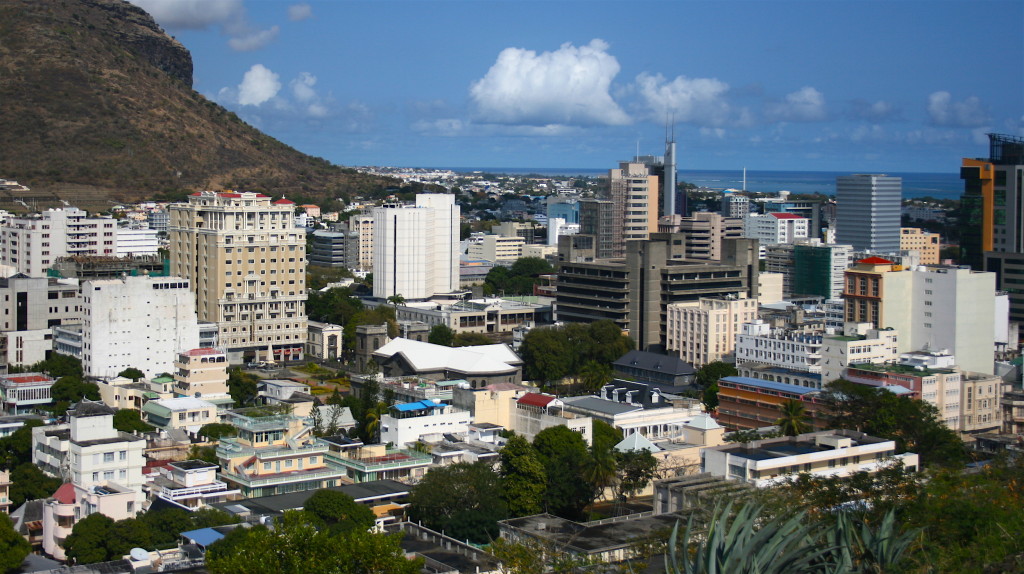- Have any questions?
- +254 718 619298
- thinking@developlocal.org
We Need Data for Disaster Risk Reduction & Resilience
10th November 2015Making Resilience Real in Africa
3rd December 2015
Port Luis, Mauritius. This island nation is one of the few in Africa considered to exhibit features of a developmental state.
Anyone who has made, even a cursory search, of the term ‘developmental state’ will immediately notice the predominant examples of south East Asian countries as models for developmental states. Over the years, with the South East Asian countries as the primary frame of reference, a number of prominent researchers have put forward definitions for the term that have been used widely and with broad consensus. Along with the efforts to find a common definition has been the pursuit of a ‘one size fits all’ approach to explaining why and how developmental regimes take root and flourish. However, it is increasingly clear that this is a pointless pursuit.
The term developmental state as it is used today originated from Chalmers Johnson’s book on Japan’s Ministry of International Trade & Industry, MITI and the Japanese Miracle where he describes Japan as a “a good example of a state in which the developmental orientation predominates.” However, the factors that led to Japan’s orientation as a developmental state are missing in many African countries today. Even where some of them do exist, they do not represent the globally accepted characteristics of good government or the notion of the state as a non-interfering actor in industry. One feature, for instance, is the existence of an authoritarian regime, not just in Japan, but in many of the newly industrializing countries of the 1960s and 70s. In Africa, where development partners have invested billions of dollars in supporting the emergence of democratic regimes over the last 35 years, an authoritarian regime is anything but desirable. Other features of developmental states include, among others: a focus on high-economic growth, a state‐led industrial policy with the government actively supporting selected industries and a professional and highly capable bureaucracy.
At the Local Development Research Institute (LDRI), we adopted a definition and a conceptual framework on developmental states to guide our research, insights and programs. This is a compound definition with inputs from a various sources who have been studying developmental states over the last 30 years.
“A developmental state is one whose ideological underpinnings enable it to act with authority, credibility and legitimacy in making deliberate and serious attempts to construct and deploy its administrative and political resources to meet the needs of the people and promote human capacities, private investment and industrialization.”
A state that is able to act, able to deploy resources, able to determine what the needs of the people are and able to identify where to deploy which resources to meet the needs of specific people is one that by design relies on timely, accurate and credible information.
The role of data as a means of implementation for Africa’s development agenda is therefore critical to policy content as it provides the raw material needed to devise policy that informs the actions of the state. Data is also key to aspects of policy process because well-implemented processes generate data to serve monitoring and review purposes in order to establish whether the needs of the people are being met.
A key source of policy content on the continent as we begin 2016 is Agenda 2063, Africa’s 50-year vision and plan adopted by the African Union as the guiding development framework for the continent. It is dedicated to the idea of an integrated, prosperous and peaceful Africa, driven by its own citizens and representing a dynamic force in the global arena.
In June 2015, the AU Heads of State and Government Summit in Johannesburg South Africa adopted the first 10-Year Implementation Plan for Agenda 2063 which member states will now proceed to domesticate by aligning their national long term development plans to it. This plan presents member states with an implementation framework for the seven aspirations of the agenda by providing a 20-goal framework and targets from which a set of indicators shall be developed for use by member states in their domestication processes. The seven aspirations that form the super structure for this ambitious long-term development agenda require the enablers delivered by a developmental state and in recognition of this, the Agenda identifies capable developmental states among its critical success factors.
In Agenda 2063 and the continent’s normative frameworks, AU member states have the basic policy content and guidance on policy processes to establish a basic platform on which developmental states on the continent can emerge. The quality of the content, legitimacy of the processes and inclusiveness of the political settlement will play an important role in the emergence of capable developmental states and the realization of this ambitious 50-year vision and plan.
Image source: Flickr user @intentional_accident


